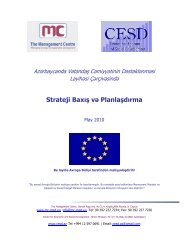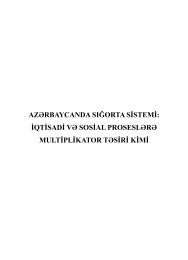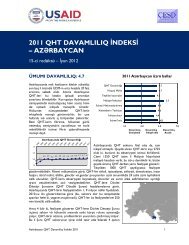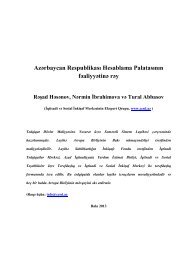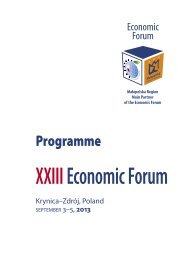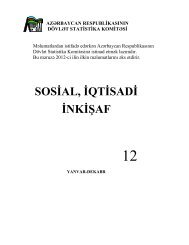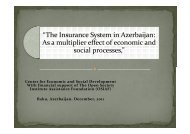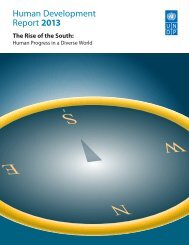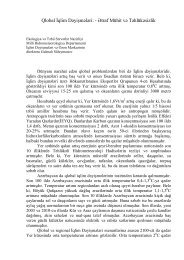THE 500 MOST INFLUENTIAL MUSLIMS - CESD
THE 500 MOST INFLUENTIAL MUSLIMS - CESD
THE 500 MOST INFLUENTIAL MUSLIMS - CESD
Create successful ePaper yourself
Turn your PDF publications into a flip-book with our unique Google optimized e-Paper software.
NotesNotes:1. Orthodoxy in Islam is based on verse 2:285 of the Holy Qur’an, and has beenbest defined by the historical 2005 international Islamic consensus on the ‘three points’of the Amman Message(see: www.ammanmessage.com), these points being:(a) Whosoever is an adherent to one of the four Sunni schools (Madhabs)of Islamic jurisprudence (Hanafi, Maliki, Shafi’i and Hanbali), the two Shi’aschools of Islamic jurisprudence (Ja‘fari and Zaydi), the Ibadi school of Islamicjurisprudence and the Thahiri school of Islamic jurisprudence, is a Muslim.Declaring that person an apostate is impossible and impermissible. Verily his(or her) blood, honour, and property are inviolable. Moreover, in accordancewith the Sheikh Al Azhar’s fatwa, it is neither possible nor permissible to declarewhosoever subscribes to the Ash‘ari creed or whoever practices real Tasawwuf(Sufism) an apostate. Likewise, it is neither possible nor permissible to declarewhosoever subscribes to true Salafi thought an apostate.Equally, it is neither possible nor permissible to declare as apostates any groupof Muslims who believes in God, Glorified and Exalted be He, and His Messenger(may peace and blessings be upon him) and the pillars of faith, and acknowledgesthe five pillars of Islam, and does not deny any necessarily self-evident tenet ofreligion.(b) There exists more in common between the various schools of Islamicjurisprudence than there is difference between them. The adherents to the eightschools of Islamic jurisprudence are in agreement as regards the basic principlesof Islam. All believe in Allah (God), Glorified and Exalted be He, the One and theUnique; that the Noble Qur’an is the Revealed Word of God; and that our masterMuhammad, may blessings and peace be upon him, is a Prophet and Messengerunto all mankind. All are in agreement about the five pillars of Islam: the twotestaments of faith (shahadatayn); the ritual prayer (salat); almsgiving (zakat);fasting the month of Ramadan (sawm), and the Hajj to the sacred house of God(in Mecca). All are also in agreement about the foundations of belief: belief inAllah (God), His angels, His scriptures, His messengers, in the Day of Judgment,and in Divine Providence in good and in evil. Disagreements between the ulema(scholars) of the eight schools of Islamic jurisprudence are only with respect tothe ancillary branches of religion (furu’) and not as regards the principles andfundamentals (usul) [of the religion of Islam]. Disagreement with respect to theancillary branches of religion (furu‘) is a mercy. Long ago it was said that variancein opinion among the ulema (scholars) ‘is a good affair’.(c) Acknowledgement of the schools of Islamic jurisprudence (Madhabs)within Islam means adhering to a fundamental methodology in the issuance offatwas: no one may issue a fatwa without the requisite personal qualificationswhich each school of Islamic jurisprudence determines [for its own adherents].No one may issue a fatwa without adhering to the methodology of the schools ofIslamic jurisprudence. No one may claim to do unlimited ijtihad and create a newschool of Islamic jurisprudence or to issue unacceptable fatwas that take Muslimsout of the principles and certainties of the sharia and what has been establishedin respect of its schools of jurisprudence.23



